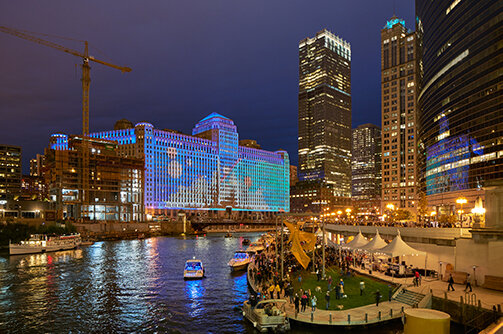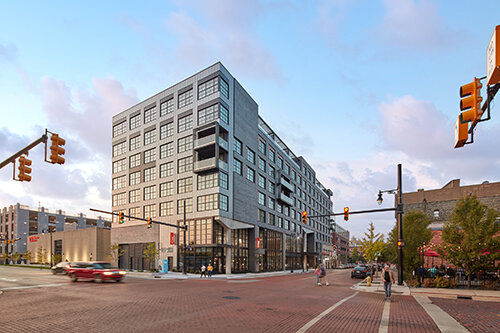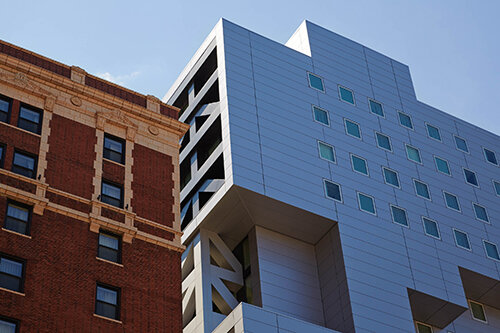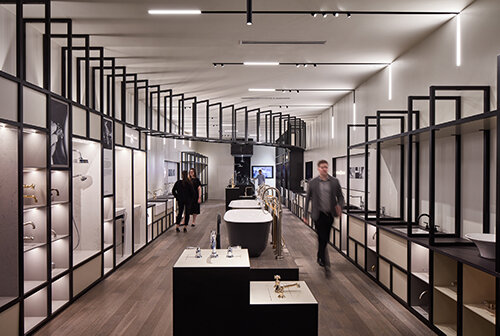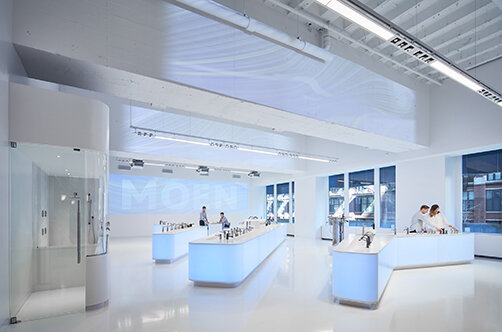Ford Calumet Environmental Center
Once a dumping ground for slag from nearby steel mills, the 280-acre Big Marsh park opened in 2016 on the southeast side of Chicago with a 40-acre bike park as well as walking trails. The Chicago Park District asked Valerio Dewalt Train (VDT) to design a 9,300-square-foot environmental center that would serve as an education and information hub and as a gateway to eco-recreation opportunities throughout the region.
The design team responded to the park’s industrial past by marrying the industrial with the natural, choosing a nail-laminated timber (NLT) structure, exposed on the interior, in tandem with glulam columns and beams. The exterior is clad in a rain screen of weathered steel that recalls the site’s steel mill history and will develop a protective patina of rust over time. Two large rooftop light monitors are clad in exposed NLT and flood the double-height exhibition area with daylight.
Location
Chicago, IL
Expertise
Architecture, Interior Design, Experiential Design, Research, Sustainability
Other Services
Institutional
Select Awards
LEED Silver
Environmental Impact Award, Interior Design Magazine Best of Year Awards
Special Mention: Architecture + Environment, Architizer A+
Honorable Mention, Archtect's Newspaper Best of Year
Runner Up, AIA Film Challenge
Select Press
Interior Design Magazine
Landscape Architecture Magazine
AIA Chicago
Photography
Tom Harris
Partners
Media-Objectives
Chicago Park District
Primera
dbHMS
SDI Engineering Corp
Chicago Commercial Construction
Tetra Tech
Biohabitats
Jacobs/Ryan Associates
The district wanted the building to convey a sense of openness while also retaining the ability to be secured when park staff were not on site. The design team responded by creating 10-foot-square floor-to-ceiling windows on all four sides that allow natural light deep into the space. Large movable hydraulic hangar doors made of steel hinge downwards to fit flush with the exterior wall, covering windows to secure the facility when it is closed. The doors’ perforated metal screens preserve visibility to the interior.
Given the marsh’s importance to migrating birds, it was essential that the design be bird friendly. The hangar doors form a canopy when raised, providing shade and ensuring that birds flying overhead do not see landscape reflected in the windows and fly into them by mistake. The windows are fritted as well to further avoid possible bird collisions. Exterior lighting at night is minimal, and there is no uplighting.
The facility meets the needs of both bikers and nature enthusiasts, with a bike repair area as well as nature exhibits, two classroom spaces, offices, restrooms, and storage spaces. VDT’s experiential design studio, Media-Objectives, designed the exhibits.
A constructed wastewater wetlands system—the first in Chicago and one of the first in Illinois—serves as an economical (and environmentally friendly) alternative to connecting to the city sewer system on the other side of the river.
The use of NLT for the structure brings a number of environmental benefits as well: it is a renewable resource, wood can be grown locally rather than shipped overseas, it is highly effective at carbon sequestration, and it requires much less energy to produce than steel or concrete.
The Ford Calumet Environmental Center is a bold expression of a larger initiative striving toward the reclamation of a landscape tarnished by industry. Through environmental education and eco-recreation, the center aims to cultivate advocacy for positive change across the Calumet Region.
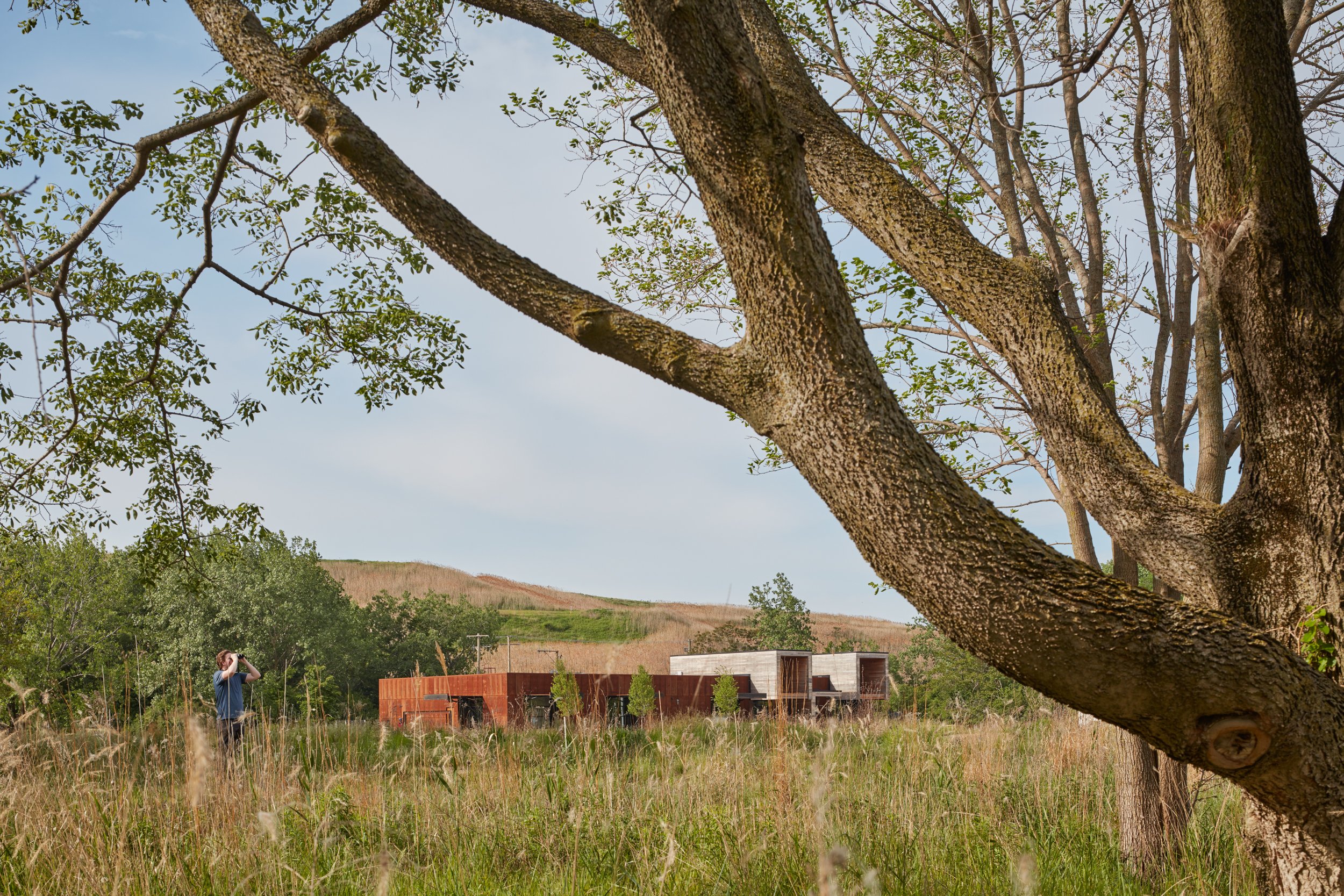
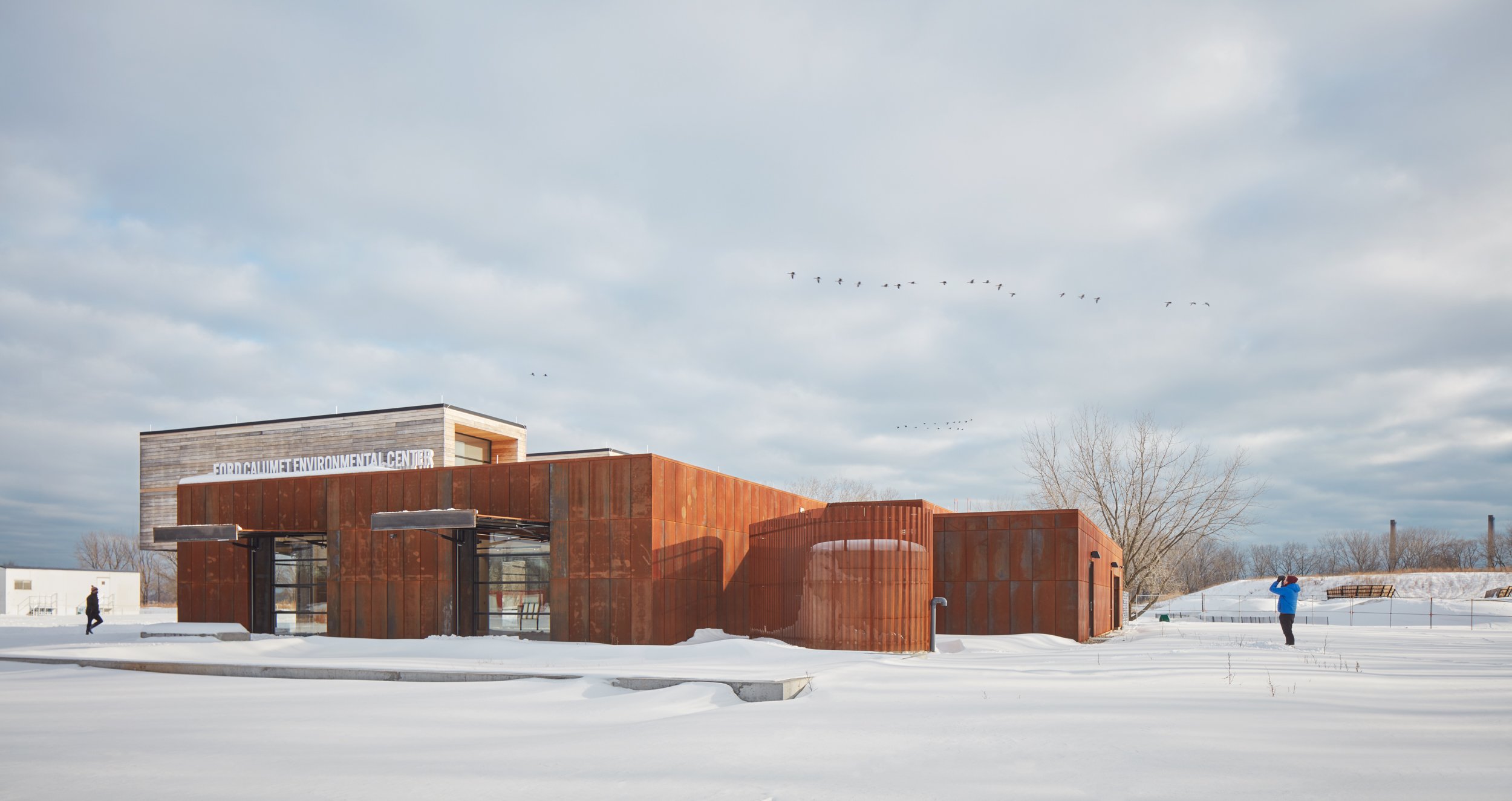
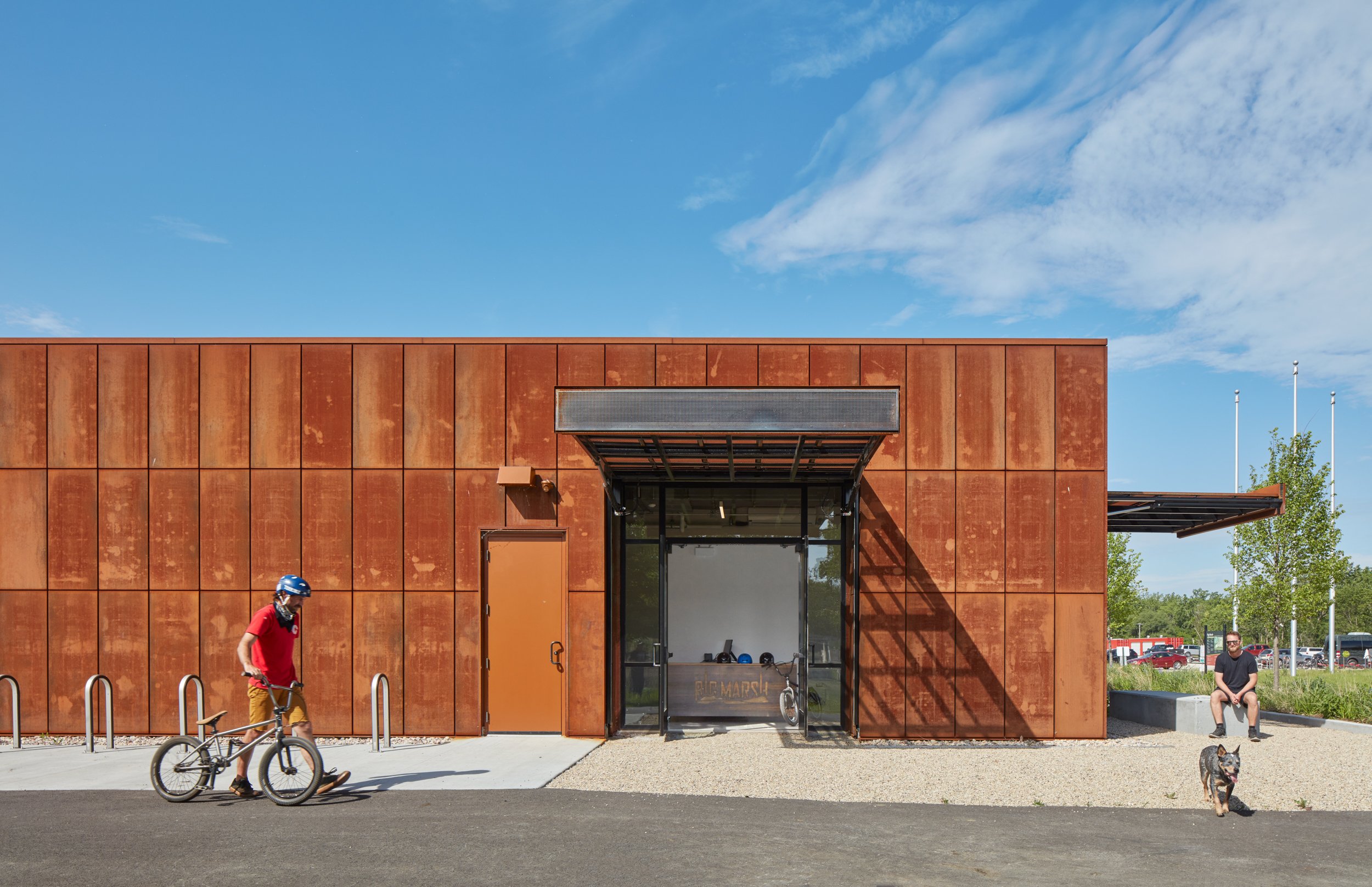
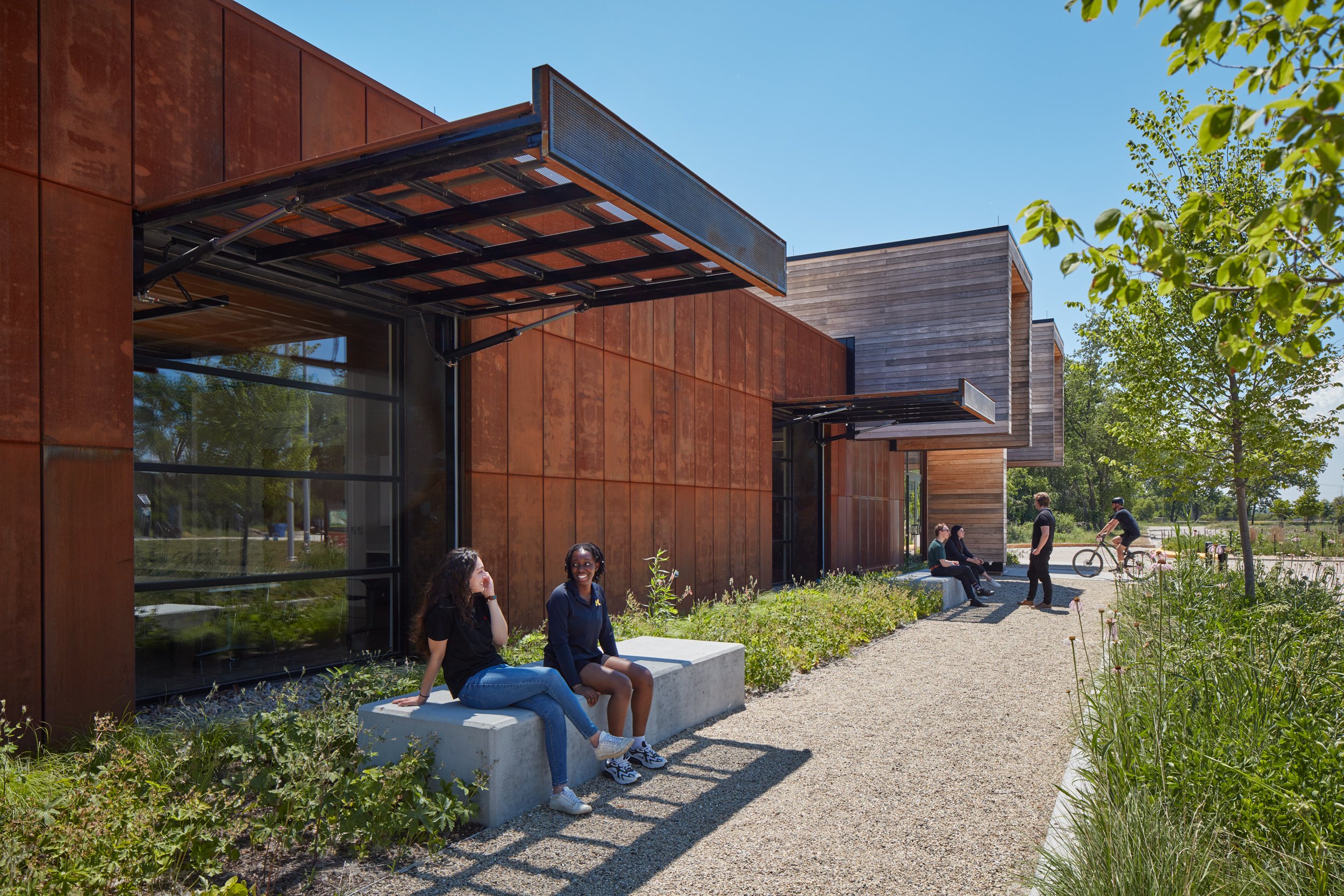
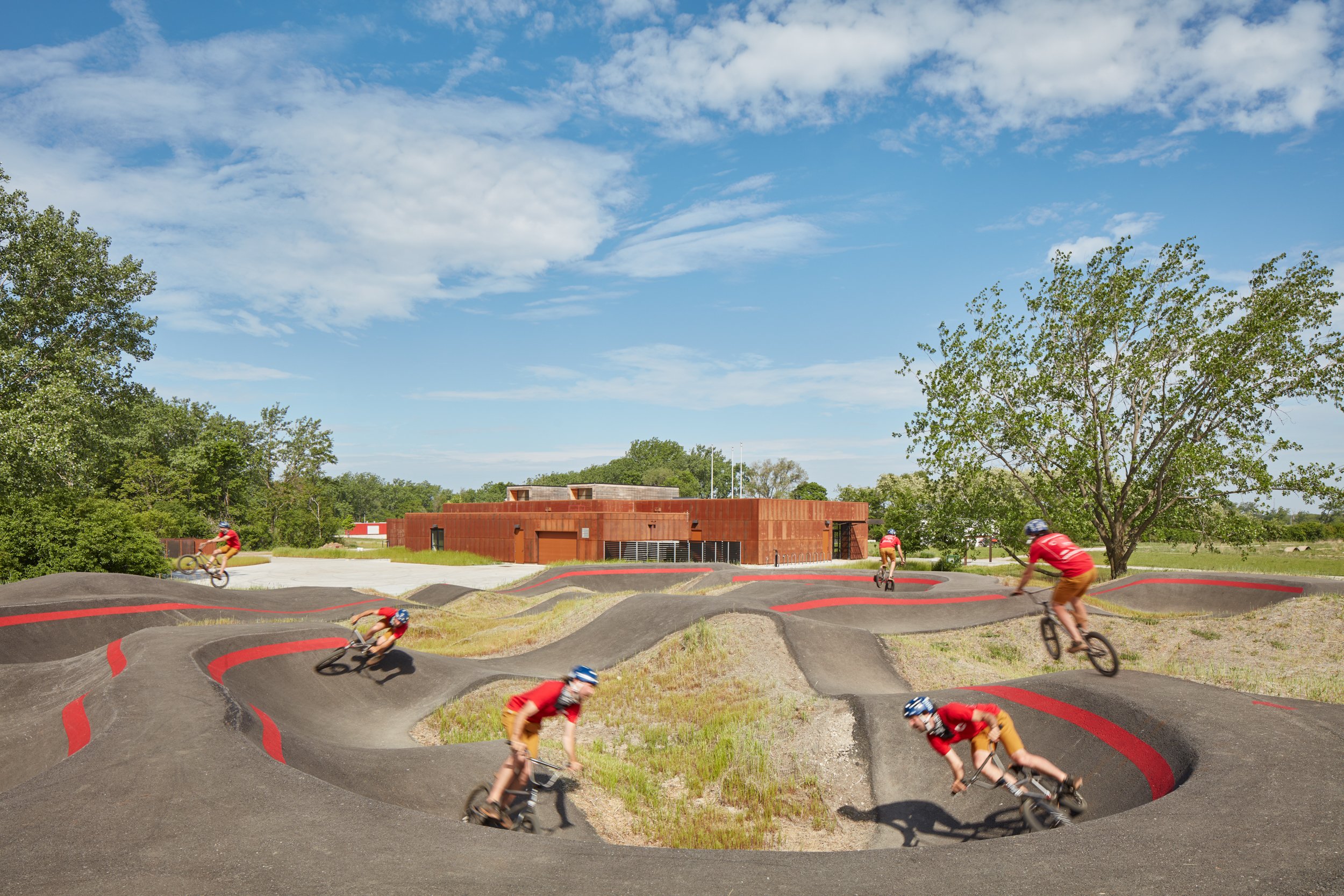
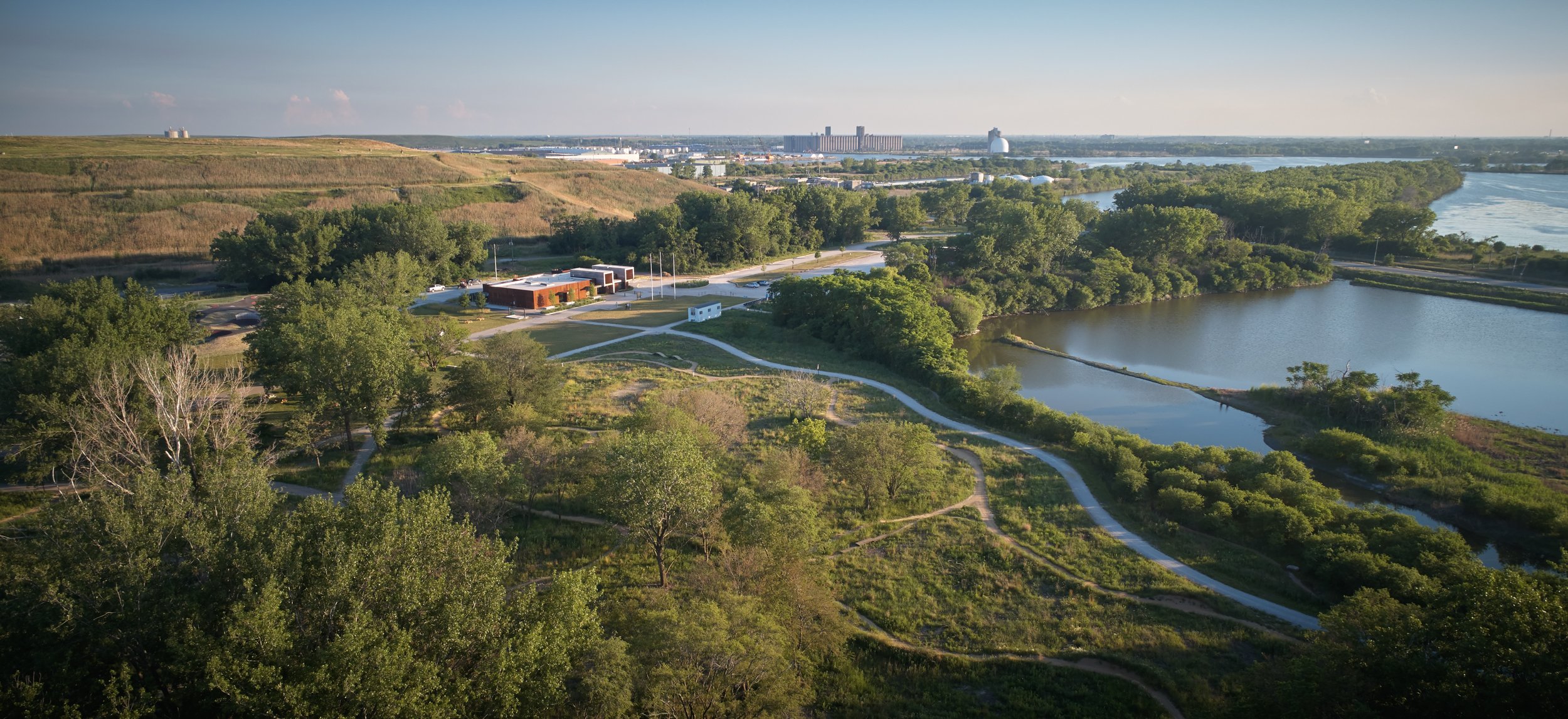
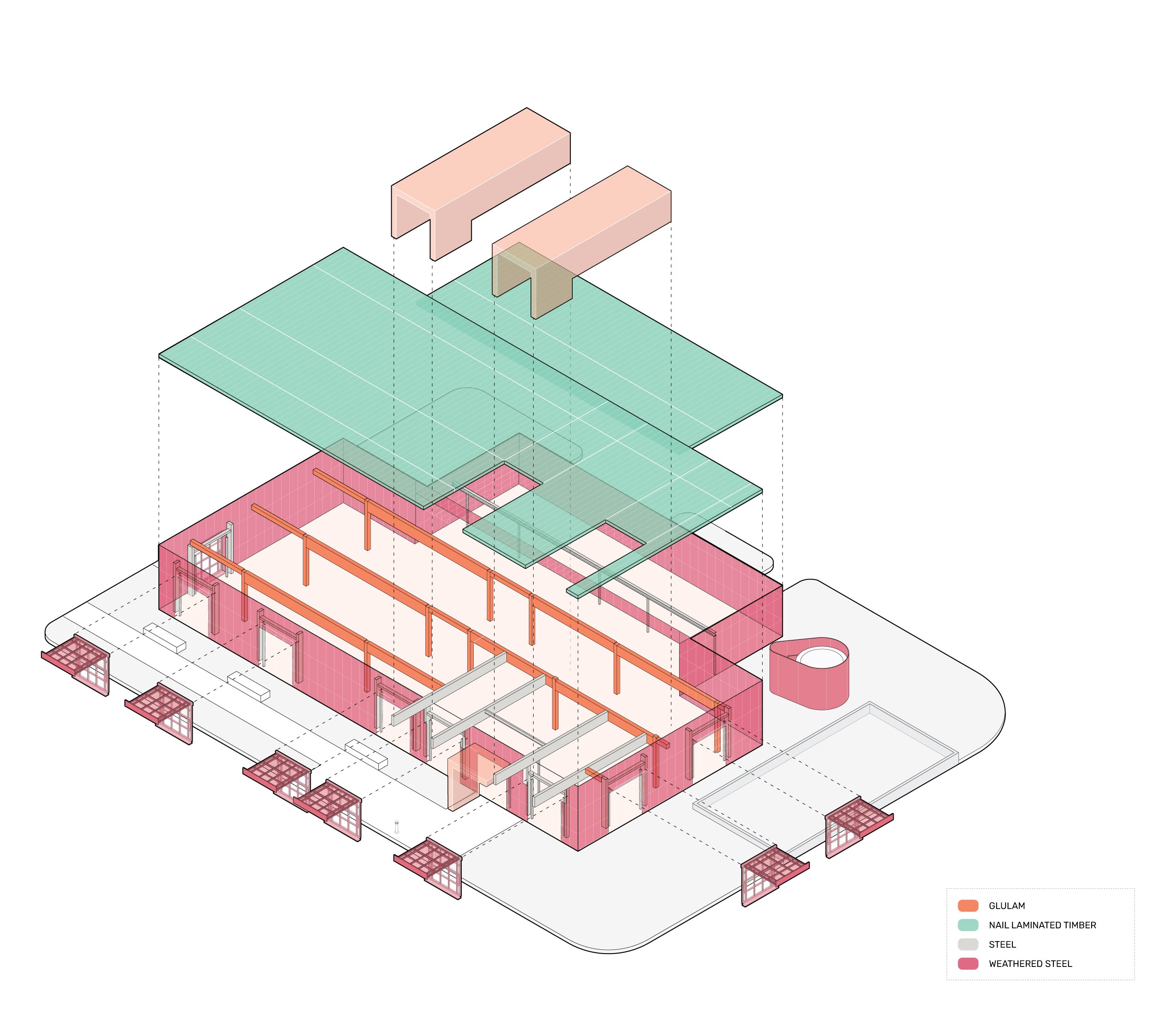
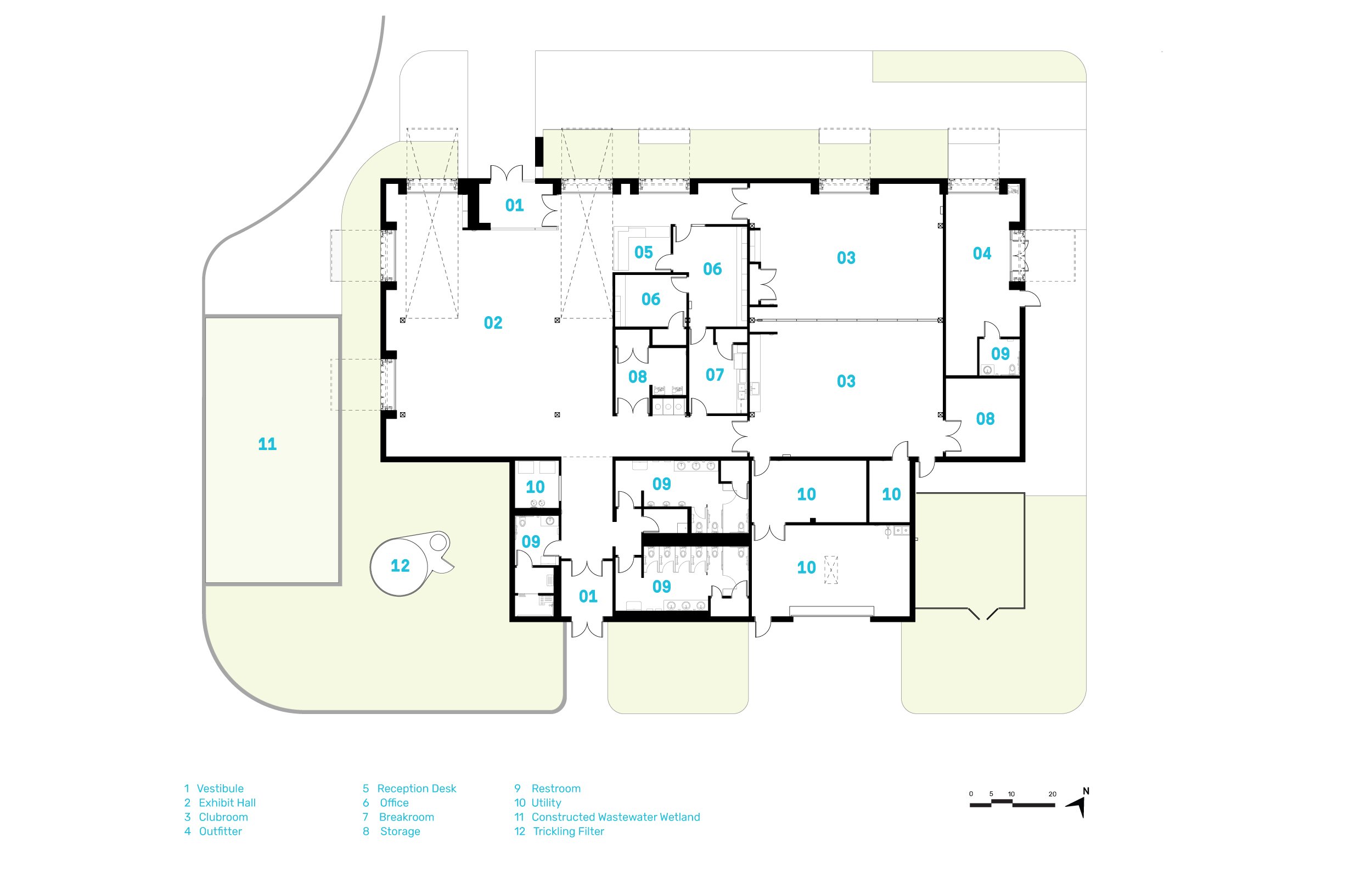
VDT’s Media-Objectives studio has partnered with CPD and various stakeholders on an exhibition that will be housed with the great hall of the FCEC. The exhibit aims to embody the natural essence of Big Marsh, expressing the dynamic energy of eco-recreation, while telling a juxtaposing story of the impact industry has had on the region. By using the Calumet Region’s history as a backdrop, displays will focus on a story of stewardship and the reclamation of natural habitats in hope of creating a place where industry, nature and recreation can harmoniously coexist.











